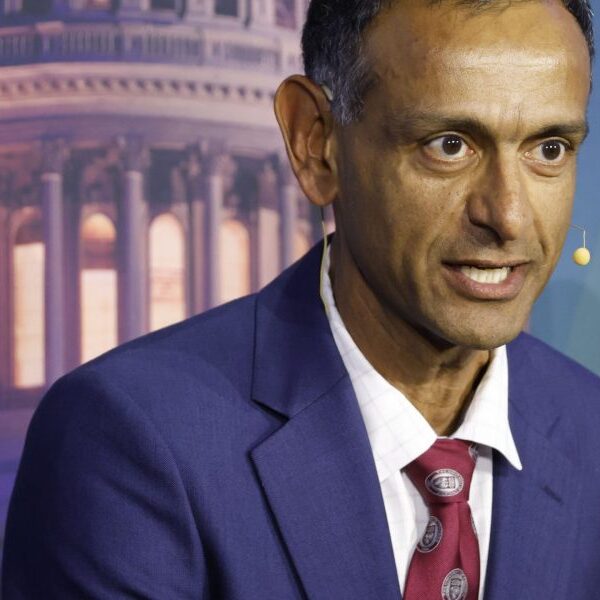
As the Trump administration rolls back financial regulation designed to protect American consumers, a group of Democratic senators led by Elizabeth Warren (D-Mass.) is demanding answers from major banks, including JPMorgan and Wells Fargo, on the potential impact.
In a letter sent to 25 banks on Tuesday, Warren, alongside Sen. Richard Blumenthal (D-Conn.) and Sen. Bernie Sanders (D-Vt.), requested information on overdraft fees, or charges imposed by banks when consumers spend more money than they have in their accounts.
The Consumer Financial Protection Bureau, an agency designed in part by Warren as part of the Dodd-Frank financial reforms, finalized a rule in late 2024 that closed a loophole allowing banks to charge exorbitant overdraft fees. According to the letter sent on Tuesday, since 2022, CFPB supervisory actions related to overdraft fees have led to nearly $250 million refunded to consumers. President Trump signed a Republican-led bill into law in May 2025 that overturned the rule.
The letter comes amid a broader legal fight between Democratic lawmakers and the Trump administration, which has sought to lay off 90% of workers at the CFPB and reverse much of its recent rulemaking, including around open banking, or the ability for consumers to transfer their own financial data between different institutions.
The future of the CFPB
While many of the U.S. regulatory agencies, such as the Securities and Exchange Commission, are focused on supervising major financial institutions, the CFPB is the only body whose primary mandate is enforcing consumer rights, with its authority rooted in the 2008 financial crisis. Since its creation, the bureau has become a lightning rod for conservatives, with Republican lawmakers long seeking to end its funding and restrict its authority.
Though opponents of the bureau have faced legal barriers, the Trump administration engaged in a campaign to effectively gut the CFPB by laying off the vast majority of its employees and staffing it with members of Elon Musk’s Department of Government Efficiency, or DOGE. Courts are still litigating the reforms, though the bureau’s enforcement activity has been significantly scaled back.
That has included Biden-era rulemaking, including provisions related to overdraft fees—one of the bureau’s landmark reforms of the past few years. The letter sent by the Democratic senators on Tuesday targeted the 10 banks that collected the most in overdraft revenue, which they said represents tens of millions of dollars.
Democrats have argued that overdraft fees can serve as a form of debanking, or removing access to banks for different types of consumers—a practice that the Trump administration and many of its supporters have tried to end. In Tuesday’s letter, the authors said that overdraft fees overwhelmingly target lower-income Americans, with nearly 80% of overdraft-related fees charged to less than 10 percent of accounts. They estimated the rule would have saved consumers up to $3.5 billion annually. According to the Senate banking committee minority, one of the banks targeted by the letter, Citizens Bank, charges $35 per incident with up to five charges per day and earned $100 million in overdraft revenue in 2023.
The 2024 CFPB rule would have still allowed larger banks to charge overdraft fees, but restricted them to a $5, or alternatively the costs of providing overdraft services, and categorized them under lending laws. Republican lawmakers, such as House Financial Services Committee chair French Hill (R-Ark.), have argued that they don’t want the federal government setting prices.
With the Democrats in the Senate minority, Warren has significantly less power as the ranking member of the banking committee. With Tuesday’s letter, she’s aiming to collect more data on how the rollback of the rule has changed the banks’ approach to overdraft fees.
“Trump’s chaotic, half-baked policies are wreaking havoc on the economy,” the senators wrote. “Raising overdraft fees in the wake of the repeal of this rule would be inexcusable.”















